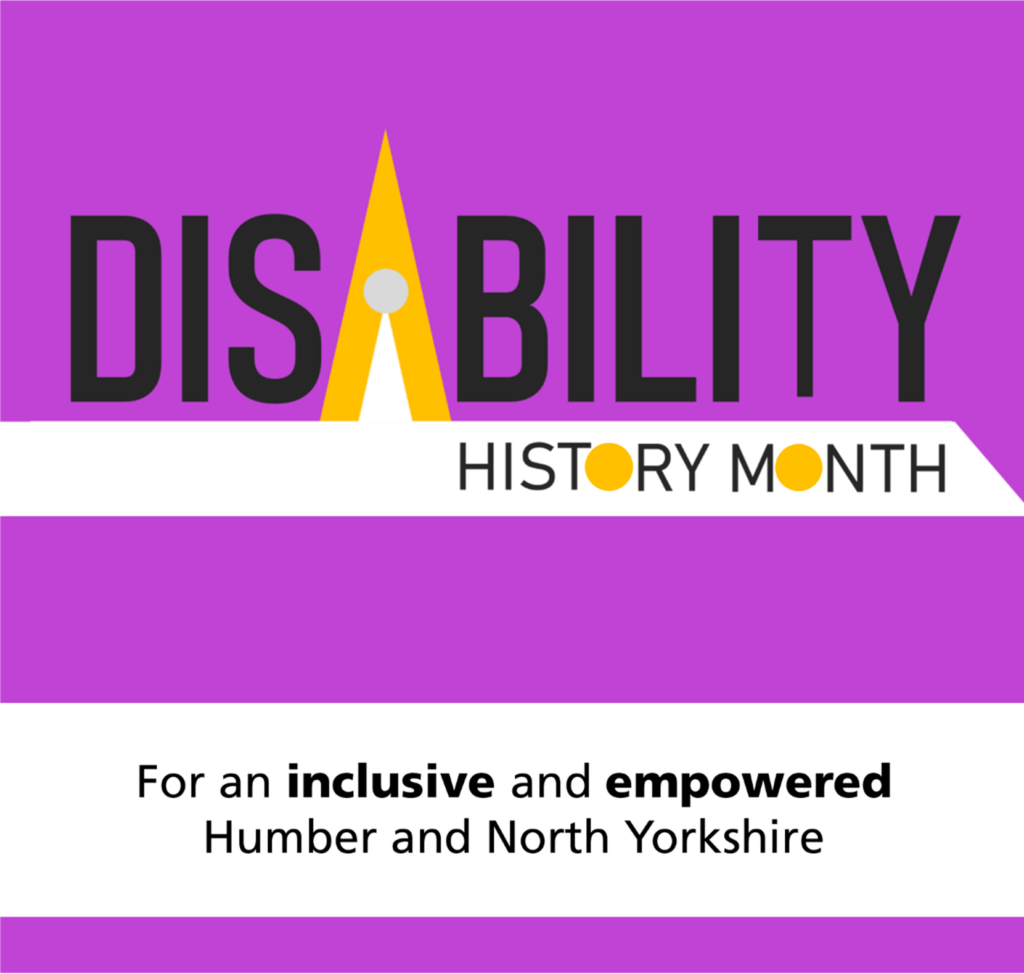UK Disability History Month (UKDHM) takes place from Wednesday 16 November to Friday 16 December 2022 and is an annual event which grew from the UK disability rights movement.
The event provides a platform to focus on the history of the struggle disabled people continue to face for equality and human rights.
It also provides an opportunity for the valuable contributions of disabled people to be acknowledged and celebrated, for us to focus on reducing the inequalities disabled people experience and to raise awareness of the ‘everyday ableism’ disabled people face.
I am a disabled person who works for NHS Humber and North Yorkshire (HNY) Integrated Care Board (ICB), I sit on the HNY Disabled Staff Network of Networks, and I know first-hand how important our commitment to equality, diversity and inclusion is.
In the UK, one in five people have a disability (that’s around 11 million people) with around 80% of those having an invisible disability.
Less than 8% of disabled people use a wheelchair and over 80% of people acquire their disability once they’re at working age.
Yet we still live and work in a largely ableist society.
When we talk about ableism we mean discrimination in favour of non-disabled people.
Ableism suggests that disabled people are ‘less than’ non-disabled people – it frames non-disabled people as the ideal and disability as a flaw or abnormality.
Ableism can take many different forms, for example:
- making assumptions about what a disabled person can or can’t do
- passing judgement on whether someone is disabled or not
- not putting a ramp in place for wheelchair access
- using disabled spaces like toilets or parking spaces as a non-disabled person
- asking someone what is ‘wrong’ with them
- viewing disabled people as ‘inspirational’ for doing typical things like having a career.
Ableism follows the medical model of disability where a person’s impairment or health condition is viewed as what makes them disabled. But this reduces people to conditions and labels; it can define people based on just a small part of what makes them who they are.
We know human beings are far more complicated and nuanced than this – we are not disabled by our impairments or conditions, but by the barriers we face and by the way society is organised – this is known as the social model of disability.
We’ll discuss ableism, the different models of disability and the lived experiences of our disabled colleagues at our discussion panel event on Monday 5 December 2022 – please join us virtually from 2.30-4pm – all are welcome to come along.
This is just one of several events we’re holding for UKDHM. Use the links below to book your place and join us:
- The history of the disability rights movement – Thursday 24 November 2022, 1-2pm
- Getting started with Makaton and more – Friday 2 December 2022, 1.30-3.30pm
- HNY UKDHM: in conversation – Monday 5 December 2022, 2.30-4pm
- The science of kindness with Paul Devlin – Thursday 15 December 2022, 4-5pm
Ableism takes a considerable toll on disabled people in all aspects of life. I use the word ‘toll’ intentionally as it represents an emotional tax (sometimes called emotional labour) on everything a disabled person does and it’s particularly important given this year’s UKDHM theme is disability, health and wellbeing.
It is one of the many reasons why our commitment to being fully inclusive across HNY is so important.
So I would encourage you, as either a disabled person or a non-disabled ally, to make some space this UKDHM to find out more about the lived experiences of our disabled colleagues. To stop and listen, to commit to learning and to consider what hidden impacts the disabled community is still facing.
Our events begin with the history of the disability rights movement, but 50 years on, there’s still so much work to do. I’m convinced, though, that if we commit to learning and growing together, we can and will ensure a more inclusive society for everybody working across health and care or accessing our services.

